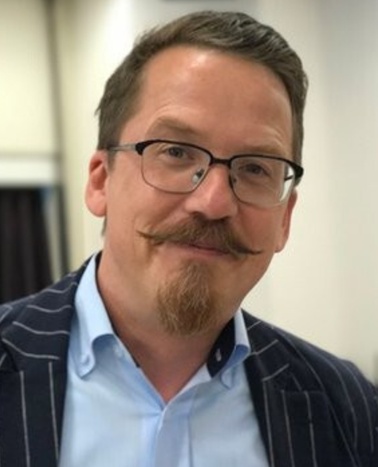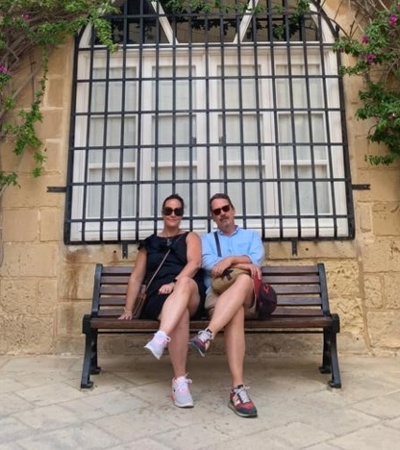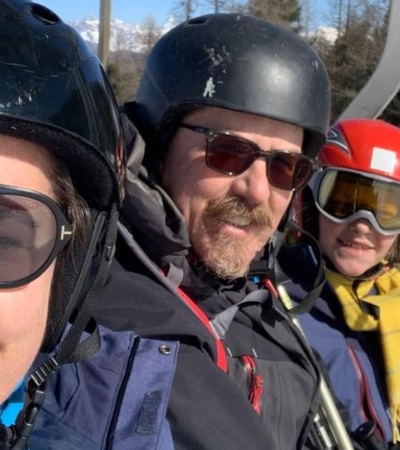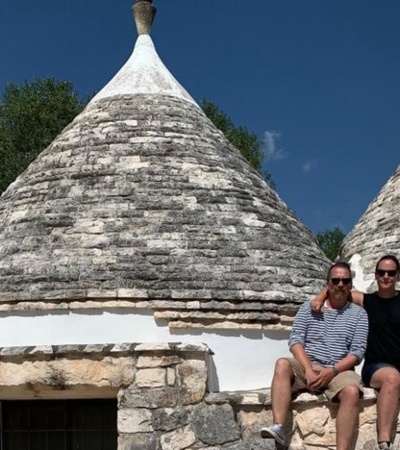
Berin McKenzie
I’m from New Zealand and I’ve been working in the UN System since 2007, with a focus on adult learning and innovation. When I was five, my father sent me a postcard from when he visited the UN Secretariat in New York as a tourist. Five years later, we took a family holiday to New York and toured the UN Secretariat. It was then I decided that I wanted to work for a system dedicated to helping people and I’ve been working toward that goal ever since. I have two children, who I am inspired by every day, especially as I watch them navigate the challenges of being global citizens.
"This is an exciting partnership as it brings together insight, expertise and good practice from across the UN System and IE University, aligned with the Quintet of Change."
Working towards a better global system
Berin McKenzie currently works at the United Nations Systems Staff College (UNSSC) developing interagency training. His team aims to contribute to a more effective, results-oriented and agile United Nations through training and knowledge dissemination. He is also a professor at IE University where he teaches the Executive Master in International Development within IE School of Politics, Economics & Global Affairs, with a focus on innovation and digital transformation. Working within the UN has been a lifelong goal for Berin—in fact, it’s something he has been working toward since his childhood.
Living and attending high school in Japan at the age of 16, Berin was fascinated by their long history and culture, especially being from New Zealand, a relatively young country in comparison to Japan. Coupled with that, Japan was New Zealand’s largest trading partner when Berin attended high school, so he felt it was a natural step to direct his career toward Japan. As a result, he chose to pursue his bachelor’s in Japanese culture and language, and then his master’s in political science with a focus on multilateralism and development.
Berin spent many years working in Hiroshima, which he describes as “a site of eternal human significance.” He was deeply inspired by the approach of the residents of Hiroshima regarding their tragic history, which involved committing to a forward-looking legacy of hope, resilience, forgiveness and learning.
When Berin started at the UNSSC in 2019, he was struck by the open, collaborative, creative and safe environment at the organization. He considers himself fortunate to be part of their mission. Berin came to share his insights as a professor at IE University thanks to the university’s partnership with the UNSSC; an opportunity which he saw as an exciting and valuable process by bringing good practices from the UN System to the IE Community, and sharing insights aligned with the Quintet of Change.
In fact, Berin’s classes are aligned to help his students progress towards their professional goals. A critical element he focuses on is scope, as he often sees initiatives consisting of an exaggerated level of introductory content that ignore the more difficult questions of scoping, implementation and bringing ideas to life. The scope and focus provided by the UN 2.0 and Quintet of Change force learning designers and practitioners to provide training which can be scoped, contextualized and applied to reality. Berin finds satisfaction in providing experiences that offer built-in frameworks, tools and outlines that participants can immediately adapt, adopt and utilize as they turn their motivation into action.
“I am fascinated by the gap in many training activities, whereby participants are instructed on what to do, rather than how to do it.”
Berin's specialization lies in adult learning, instructional design and innovation. He developed a deep interest in these areas during his previous role at the United Nations Institute for Training and Research (UNITAR) office in Hiroshima, where he noticed a gap in many training activities that focused on "what" to do rather than "how" to do it. He noticed that assumptions were being made in the design of learning interventions that did not align with the realities of learners.
However, Berin has taken many stepping stones to where he is now, having worked and volunteered in various roles throughout his career. Before joining the UNSSC, he spent 17 years living in Hiroshima, where he worked for the local government before transitioning to a learning role at the United Nations Institute for Training and Research (UNITAR). He designed and developed numerous programs targeting civil servants and NGO leaders from Afghanistan, Iraq and South Sudan, with a focus on post-conflict reconstruction. He also worked on nuclear non-proliferation training for diplomats from ASEAN, tsunami preparedness training for women leaders from small island developing states in the Pacific, and training regarding the management of World Heritage Sites.
He is continuously inspired and challenged by his team to design scoped, relevant and accessible training. Together, they prioritize making the most of time and social, political and financial capital so that participants can get the most out of their experience.
Outside of his professional development, Berin's main hobby is exploring and engaging with the European experience. Coming from New Zealand, he finds the proximity of different countries in Europe fascinating. He is intrigued by the balance between preserving cultural identity and developing a European identity, and finds living in Europe to be an enriching experience with profound potential for the global landscape.
Ever since COVID-19, the UNSSC has had to adapt to the work-from-home model. Berin was key to this process, developing the design, delivery and iteration of the transition with a focus on mental health and well-being. Berin believes there is a growing need for discussions around mental health but that it is an exciting time to be part of this transition within the UNSSC.
"This is an exciting partnership as it brings together insight, expertise and good practice from across the UN System and IE University, aligned with the Quintet of Change."


